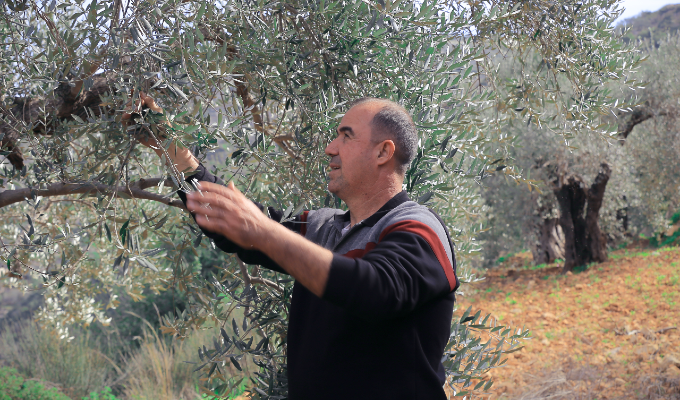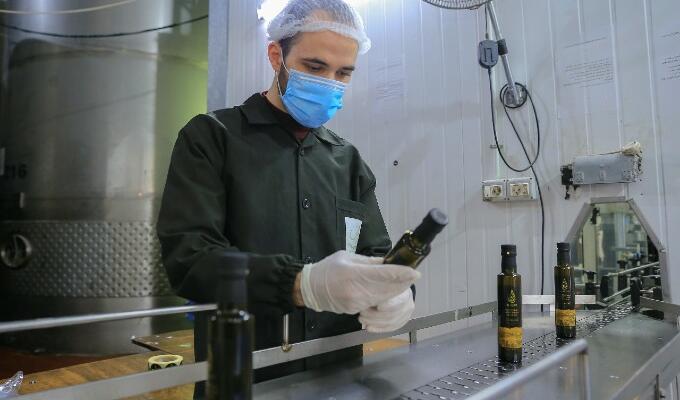


Export promotion brings long-term benefits to Palestinian agribusinesses
An initiative of the International Trade Centre (ITC) has shown more than two dozen Palestinian farming enterprises how to be market-oriented, competitive and profitable.
The project designed to help the Palestinian agricultural sector clinch more sales and boost productivity may have ended, but it continues to benefit the 25 agribusinesses that took part.
The initiative, Reform and Development of Markets, Value Chains and Producers’ Organizations, targeted small businesses with export potential and a desire to reach more markets. It first focused on market intelligence, identifying international market requirements, and showing participants how to comply with them, and then continued with developing marketing plans for selected products.
The second phase centred on market exposure activities with a three-pronged approach: delivering one-on-one coaching to help firms strengthen their presence on social media so they can better connect with online buyers; arranging online matchmaking events with European buyers; and launching a website for food exporters in the West Bank and Gaza Strip.
In the wake of the COVID-19 pandemic, ITC changed the project’s format by shifting to digital channels . Participants learned about international market requirements and commercial opportunities by joining virtual study tours and online events. The switch meant more companies participated, with a greater impact than expected.
‘You should see the project as follows: if you work in agriculture, you go to your land and prepare it for planting. You do the “plowing” (preparation) of the soil. That is where we benefited,’ said Subhi Anabtawi of family-run Al’Ard. ‘This is how ITC helped us with exports [to Europe]. It created the dynamics in our export department and in our marketing activities, we also have good contacts, and good thinking within our staff. Now we should focus on how to reap the actual fruits of this.’
Linking producers with buyers
A total of 54 matchmaking meetings took place between the companies and 15 buyers from international markets. Thanks to these activities, Al’Ard entered three new markets: Bahrain, Kuwait and the United Arab Emirates. The firm is also speaking with seven potential buyers, having sent samples of its products— including olive oil, herbs, spices and tahini—to companies in the Netherlands, Spain and the United Kingdom.
These matchmaking sessions enabled Alkuna Natural Foods founder Ali Awartani to meet his main Dutch buyer—for the first time—and win an order for a new product, halva. The Ramallah-based company connected with seven buyers and had five one-on-one meetings with potential buyers from Belgium, France, the Netherlands and the United Kingdom. Alkuna is also negotiating with an Australian company that is keen to import Palestinian freekeh.
’Alkuna’s founder also benefited of individual coaching sessions and workshops on e-commerce, digital marketing content development, platform development and study tours. Awartani said the coaching was ‘very helpful in reinforcing the strategic direction taken’.
A better online presence
The coaching taught Al’Ard, Alkuna and the other 23 small businesses how to execute sales and marketing professionally, how to find good business matches using online tools and channels, and how to select and test an online platform. As a result, 25 companies created their own accounts on social media marketing channels including Facebook, Instagram and LinkedIn, 10 registered in virtual marketplaces, 10% launched marketing campaigns and 15% improved their own websites.
The project, which ended in mid-July, also created the online matchmaking website Palestinianfood.net, which showcases Palestinian food exporters. The website has attracted more than 1,400 users and 2,720 visitors from 86 countries including Canada, Ghana, Honduras, India, Japan, South Africa and the United States, as well as most members of the European Union. It allows each firm to have a link to its profile, modify its profile and products, contact buyers and receive requests for offers.
’The platform provided an excellent place for me to reach large, important markets worldwide,’ said Jamileh Dajani, owner of Jamileh Dates. ‘It encouraged my company to obtain food safety certification, which is essential for my products to reach and enter those markets.’
The Food and Agriculture Organization of the United Nations implemented the initiative with the International Trade Centre’s support, funded by Denmark, the European Union, the Netherlands, Switzerland and Spain.



